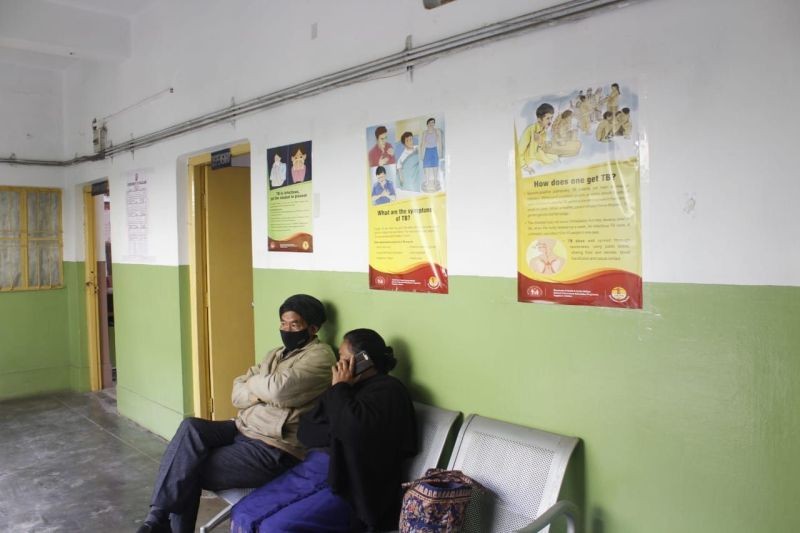Patients at the Kohima TB Centre. Many patients of Drug Resistant TB are being re-infected in Nagaland due to non adherence of their treatment course.

Ketholeno Neihu
Kohima | February 14
Among the many reported cases of Tuberculosis in Nagaland, Multi Drug Resistant (MDR) or Drug Resistant (DR) TB patients are often found not adhering to the treatment process, thus leading to re-infections.
Given the duration of diagnosis to the treatment process, many patients attest to experiencing psychological, social and financial implications to the already deteriorating health.
The medication course can be monitored by self, caregiver or family members without hospitalization. It is a preventable and curable illness, but the treatment runs for 9-18 months with injections, and patients need to take high doses of medication on a daily basis.
Luntsuba is one such patient who suffered the consequences of not completing the full treatment. “I was diagnosed with TB in 2014 but I did not know that it would come back in the later part of my life for incompletion of the medication,” he admits.
From the numerous struggles he underwent, Luntsuba regrets not being able to complete his studies since the 6-7 pills he had to consume from his college hostel affected his concentration in studies.
“I left the medication course half way also due to difficulty in accessing the drugs on time after I left the state capital Kohima for my village in Tuensang district, given the transportation barrier,” he informs.
In Nagaland, as per records from Nikshay- a case based, web enabled TB programme management system, a total of 481 cases were recorded as detected or diagnosed with MDR TB between 2017 and 2021.
While number of those who had completed their course or those who had recovered or cured are not given, the number of ‘Lost to follow-up’ or those who had not completed their course was 75. Further, as per records 36 deaths were reported and 4 were sectioned under the ‘failure’ category.
A lack of awareness and knowledge is one underlying cause for the plight of MDR TB patients in Nagaland.
Dr Asunu Thong, who has worked with the TB Programme, says one reason for DR/MDR TB re-occurrence was due to “most patients not completing their initial course of TB treatment.” Initially, 6 months become a very long duration for them. So they end up taking medication for one or two months and when they feel better, they stop taking the medicine.
When they come back with the same symptoms for second and third time, they become resistant to the TB drugs, Thong adds.
Luntsuba experienced a similar case when the symptoms returned in 2020. This time he had to undergo a longer duration of medication and hospitalization in a Drug Resistant TB hospital.
Another reason for DR/MDR TB cases, as Thong says was people’s reliance on a lot of other traditional medicines, besides the allopathic treatments. Due to lack of caution and monitoring, patients also become vulnerable in transmitting TB to other people.
In a recent case, a father had transmitted the illness to his daughter due to non-completion of the treatment course. Dr Thong adds that “even if they are advised to take (medication) in the right duration and right dosage properly,” many fail to do so.
On this, the doctor states that medical workers need to explain to the patients, caregivers and family members properly at both private and government setups since a lot of them don’t want to take the medicine for a very long duration.
While awareness in getting tested or availing treatment is also pacing up, she adds that given the nature of the medicines, which are mostly very strong, patients require a lot of support, encouragement and love from the caregiver and society.
(This is the first part of a series)






